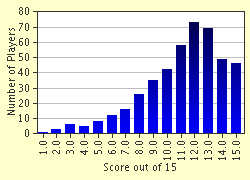Quiz Answer Key and Fun Facts
1. What name is generally given by historians to the German government between 1919 and 1933?
2. What was the Hindenburg disaster?
3. In what year did Prussian Prime Minister Otto von Bismarck unify Germany?
4. Who, upon being elected in 1919, was the President of the Reich before Paul von Hindenburg?
5. Which unusual place did Hitler dictate his book 'Mein Kampf' from during the 1920s?
6. From which of these did Hitler try to make a living?
7. Who died in the infamous 'Night of Broken Glass' or 'Kristallnacht', as it is called?
8. What year were the Olympic Games held in Nazi Germany?
9. What was the Schlieffen Plan?
10. In Adolf Hitler's government, who was the Minister of Propaganda?
11. Which country loaned money to Germany in 1924 through the Dawes Plan?
12. What was the Anschluss?
13. Which of the following was the term for a temporary currency used during the 1920s when there were problems with the ordinary Deutsch mark?
14. What year did Stresemann become Chancellor of Germany?
15. After the First World War, to which nation did Germany lose the area known as Northern Schleswig?
Source: Author
Bretton
This quiz was reviewed by FunTrivia editor
bloomsby before going online.
Any errors found in FunTrivia content are routinely corrected through our feedback system.

